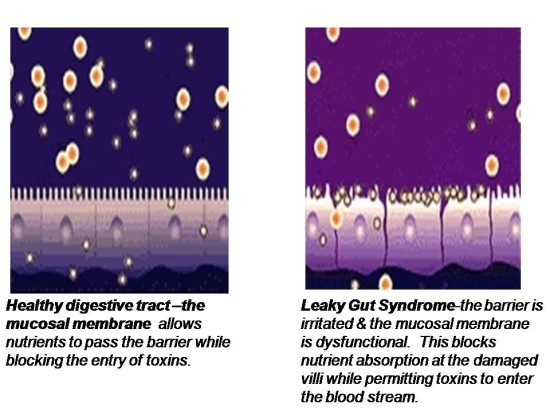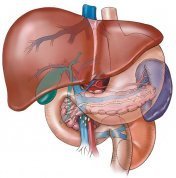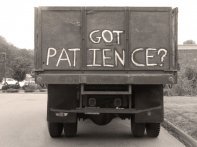Leaky gut syndrome (LGS) describes a condition of altered or damaged small intestine lining, caused by antibiotics, toxins, poor diet, parasites or infection, that can lead to increased permeability of the gut wall to toxins, microbes, undigested food, waste or larger than normal macromolecules.


Leaky gut syndrome (LGS) describes a condition of altered or damaged small intestine lining, caused by antibiotics, toxins, poor diet, parasites or infection, that can lead to increased permeability of the gut wall to toxins, microbes, undigested food, waste or larger than normal macromolecules. Leaky gut is essentially a condition in which the tight junctions of the intestinal wall loosen, enabling potentially harmful substances to enter the circulation.
Did you know that an amazing 60% of your immune system is located around the digestive system, in particular, the small intestine? In a normal healthy person, the small bowel behaves like a colander or a sieve, allowing only the breakdown of very fine products of digestion into your bloodstream. The membrane of the small intestine allows only very small nutrients and fats, proteins and starches which are all broken down to very small particles to enter into the bloodstream, while the larger molecules and many different types of toxic compounds are kept out.
In your intestinal tract, there reside very small micro-villi (thee are very tiny finger like projections which come off the lining of the intestinal tract with hair like cell membrane extensions – called the “brush border”), which serve as the major point of absorption of nutrients. Specific nutrients like as glucose, amino acids or electrolytes are carried through the micro-villi and into the cells via “active” transport, and there are even specific carrier molecules to take the nutrients across the cell membrane.
Leaky gut syndrome causes the intestinal lining to become inflamed and the micro-villi become damaged or altered. These damaged micro-villi then cannot go on to produce the necessary enzymes and secretions that are essential for a healthy digestion and the absorption of nutrients. It is not hard to see the consequences – poor absorption and uptake of vital nutrients. The outcome? fatigue and much more in time.
These cells lining the micro-villi together form a strong, sturdy and almost impenetrable structure, preventing those larger molecules from passing through. When an area becomes inflamed this weakens the structure of the allowing those larger molecules to escape through. These larger molecules provoke the immune system which in turn stimulates the production of antibodies. Antibodies themselves are highly specific proteins which are utilised by the immune system to locate and attack foreign objects to fight off the molecules, as they are perceived as “antigens”, and antigens are substances which are capable of triggering the production of antibodies.
 Leaky gut syndrome affects the liver in time
Leaky gut syndrome affects the liver in timeHealthy people have developed a strong enough immune system to control the leakage of toxic substances but as it becomes over loaded the toxins leak into the liver resulting in an overworked overburdened liver. I have noticed that as LGS progresses, and particularly if the diet is not changed for the better over time, the person becomes increasingly tired, may develop low-grade nausea and develop liver congestion.
The liver is the largest organ in the body, and plays a critical role in detoxification as well as having many hundreds of other functions including:
As LGS progresses, it can completely overwhelm the liver in time because it can become flooded it with additional toxins diminishing the liver’s ability function normally. remember, one of the liver’s main roles is to detoxify the body and help keep the bloodstream clear, it was designed to neutralise chemical substances. When the liver cannot cope with the level of toxins, it will begin to expel these toxins back into the bloodstream. The circulatory system will then over time begin to store these toxins into various parts of the body, including other organs, the connective tissues and even the muscles where they are stored to prevent major organ damage.
As the intestinal lining of the small bowel becomes more damaged over time, substances larger than particle size such as disease causing bacteria and fungus, potentially toxic molecules and undigested food particles pass through these weakened and “leaky” cell membranes. They enter the bloodstream, triggering the production of antibodies and cytokines (protein molecules released by the immune system to cause a reaction in other cells) to fight the antigens. The cytokines alert the lymphocytes (white blood cells) to fight the particles that have escaped through the intestinal lining. These cytokines along with other cells produced by an over alert immune system start to cause allergic reactions and more inflammation throughout the body. The result is a low-grade pain in the bowel and a generally uncomfortable sensation in the lower part of the abdomen. The bowel motions become altered – there could be constipation of diarrhoea, bloating, gas and many other sensations experienced.
A healthy digestive tract is normally coated with a this layer of mucus to keep out foreign substances. LGS slowly develops as this mucus layer becomes weakened and the bacteria, which usually resides in the intestine starts to inhabit other parts of the body as well. This is called “bacterial translocation”, and it happens as a consequence due to the intestinal permeability.
 It takes time to heal LGS
It takes time to heal LGSThere are several ways to remedy this situation, and you need patience and the right approach to cure LGS. The most effective treatment will be the subject of a further article on how to successfully treat this all too common complaint.
To sum LGS up, your intestine develops microscopically tiny leakages allowing substances that would normally be digested to enter your bloodstream. These substances and toxins are slowly passed onto the liver to deal, but in time it simply cannot cope with this increasingly and overwhelming load of toxins and will attempt to store them in the body tissues. The liver eventually becomes overworked as the intestinal lining gets consistently weaker over time, and more and more toxins and undigested food progressively enter into the bloodstream. The immune system sends out an increasing amount of antibodies to fight these foreign substances and in doing that toxic chemicals are produced which attack the body tissues causing allergic reactions and pain and inflammation throughout the body.
References
Hello Dr Bakker,
I have psoriasis, and I am curious to know how omega 6’s impact this situation. Are there certain foods that are allowable when they have higher ratio levels of omega 6’s to omega 3’s. Without having food sensitivities to the following, is it okay to eat grass fed beef, pasture raised pork, and chicken. This also applies to certain nuts and seeds with higher omega 6’s to omega 3’s. If there’s any advice you can give, I would greatly appreciate it. Thanks in advance, Victor